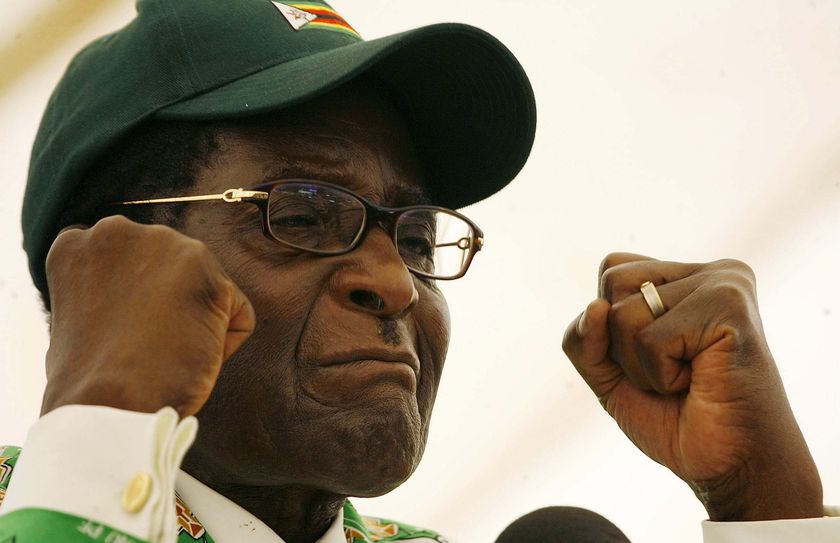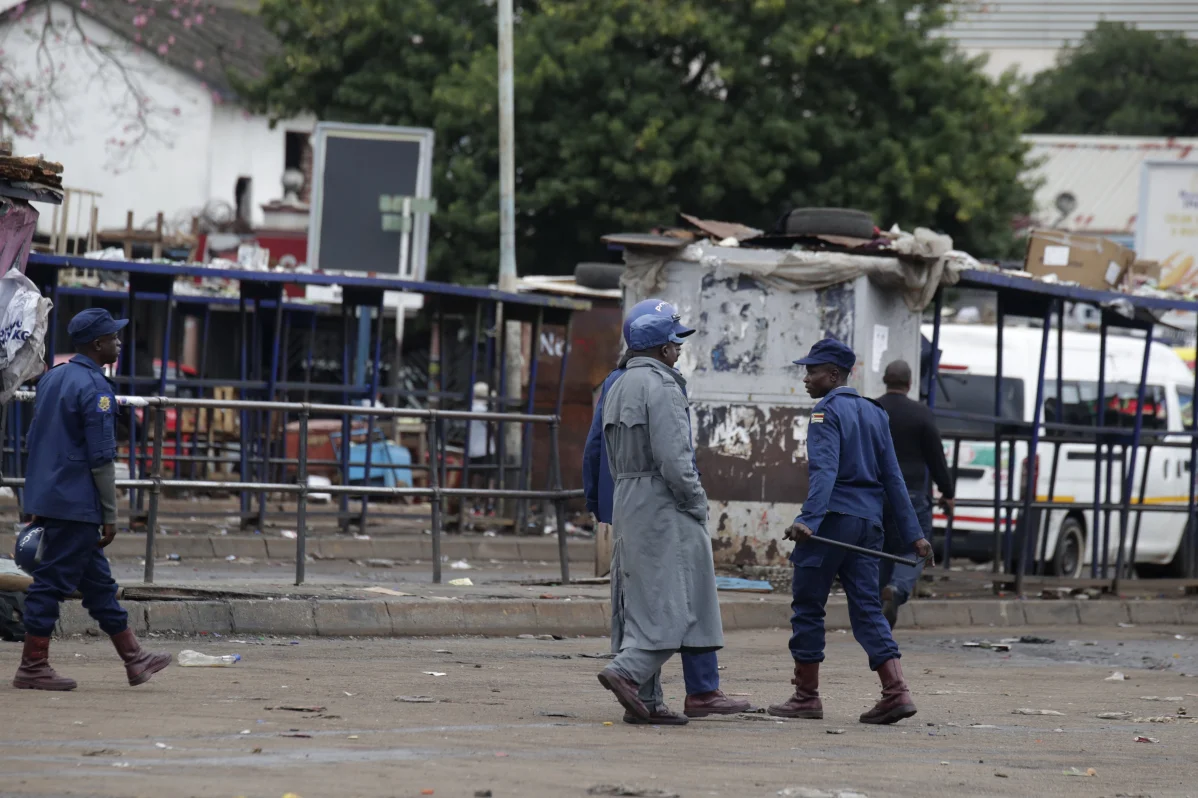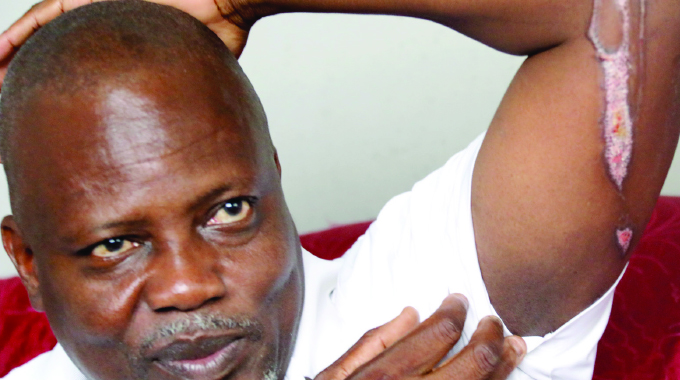BULAWAYO – HE may be retired from politics, but former President Robert Mugabe would still give the current crop of political leaders a run for their money, according to a new poll.
Mugabe, 94, was ousted in a military coup last November after 37 years in power. The military installed his deputy, Emmerson Mnangagwa, in his place.
The coup succeeded only because opposition supporters – frustrated by a failing economy and rampant unemployment – joined in, massing in urban centres and cheering the soldiers on.
But after being at the helm for seven months, and facing his first election for President on July 30, it would seem Mnangagwa has been unable to endear himself to Zimbabweans.
A nationally representative pre-election survey by Afrobarometer, carried out by the Mass Public Opinion Institute (MPOI), shows Mnangagwa is trusted as a leader by just 47 percent of Zimbabweans, only 14 percentage points better than Mugabe, who is not campaigning in this election.
The survey was conducted from a sample of 2,400 registered voters between June 25 and July 6 – exactly a month before the election.
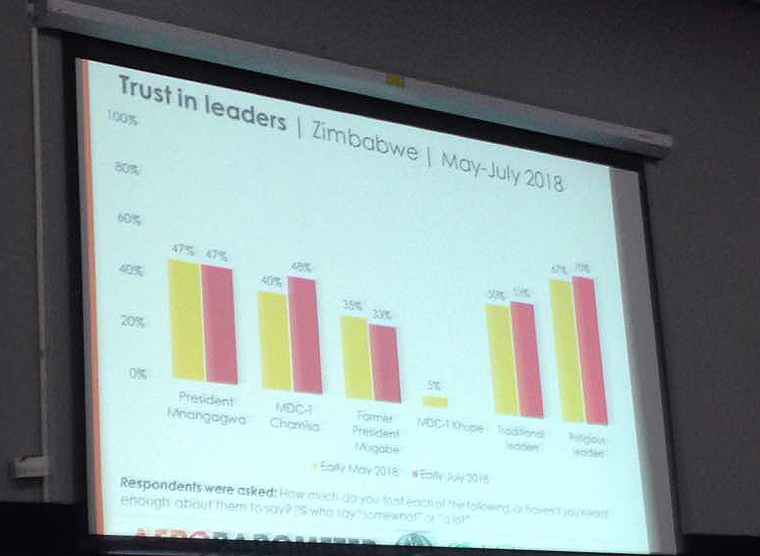
Opposition MDC Alliance leader Nelson Chamisa, who only assumed the position in March following the death of the party’s founding leader Morgan Tsvangirai, is the most trusted political leader in Zimbabwe with a 48 percent approval rating.
Thokozani Khupe of the MDC-T is trusted by only five percent of the electorate, while the other presidential candidates’ numbers were almost insignificant.
Afrobarometer asked the respondents: “How much do you trust each of the following, or haven’t you heard enough about them to say?”
A staggering 33 percent of the respondents said they still trusted Mugabe, a man without a political party, indicating it will take some time for some Zimbabweans to accept another leader in the office of the President.
Two analysts who spoke to ZimLive.com said Mugabe’s legacy of preaching “black pride” and absolute conviction in his ways – although unpopular with some – would be difficult to erase as the acceptable standard of leadership.
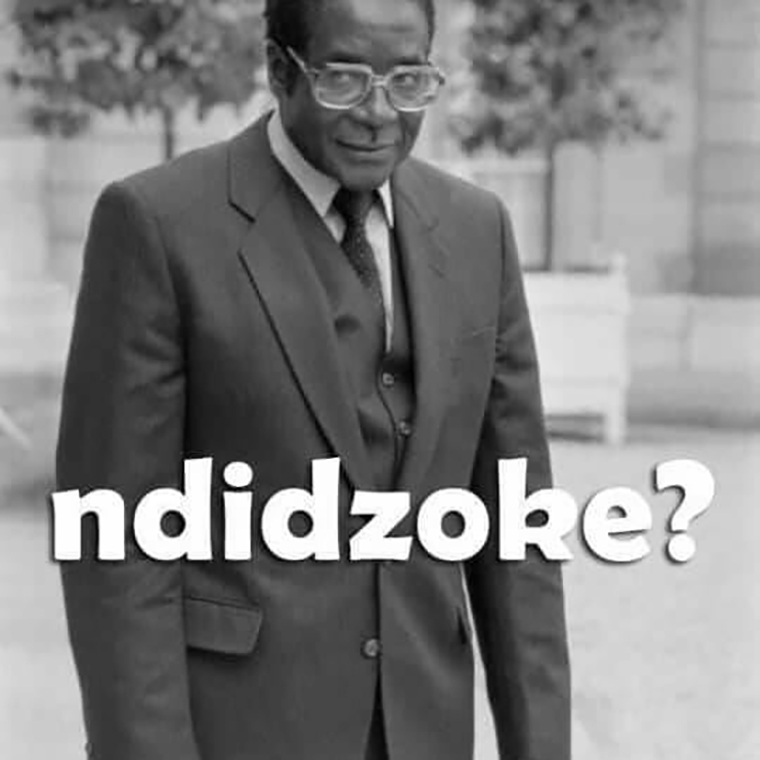
Cultural studies scholar, Khanyile Mlotshwa, said for Mugabe to command trust even though he was out of power showed that people are disillusioned with the new regime’s direction. He noted the neo-liberal policies undertaken by Mnangagwa’s regime that make Mugabe’s policies of land reclamation and black empowerment, which alienated foreign capital and hurt investment, seem people friendly.
“The people now feel like they’re in a desert and it’s better to go back to Pharaoh, as they fear this Moses who is Mnangagwa will starve them to death,” Mlotshwa said.
He said in the seven months at the helm, Mnangagwa had failed to carry Zimbabweans with him. The erosion in the value of the bond note had slashed salaries by up to 50 percent in true value, he said, and this is what Zimbabweans will remember when they vote on July 30.
Veteran journalist Tapfuma Machakaire, who spent years covering Mugabe’s reign, said Mugabe had become a household name in Zimbabwe and will take a longtime for people to accept that he is no longer the leader.
“To some people, Mugabe had become almost like a parent despite his weaknesses. They had become used to Mugabe’s style and way of life such that they don’t see any other style of leadership,” he said.
“The candidates don’t look serious. People were used to Mugabe’s rigid position, his hard stance on almost everything. The relationship between Mugabe and the people is that of the headmaster and pupil where the pupil unwillingly accepts the headmaster’s authority and lives by his rules.
“It will take some change of mindset for the 33 percent to accept that there is a different person in the office of the President, with a different style of doing things. Mugabe was endeared but feared at the same time.”
Mugabe’s surprising popularity figures could yet have a bearing on this election, if his loyalists feel unhappy in sufficient numbers with how he was ousted and turn against Zanu PF.

